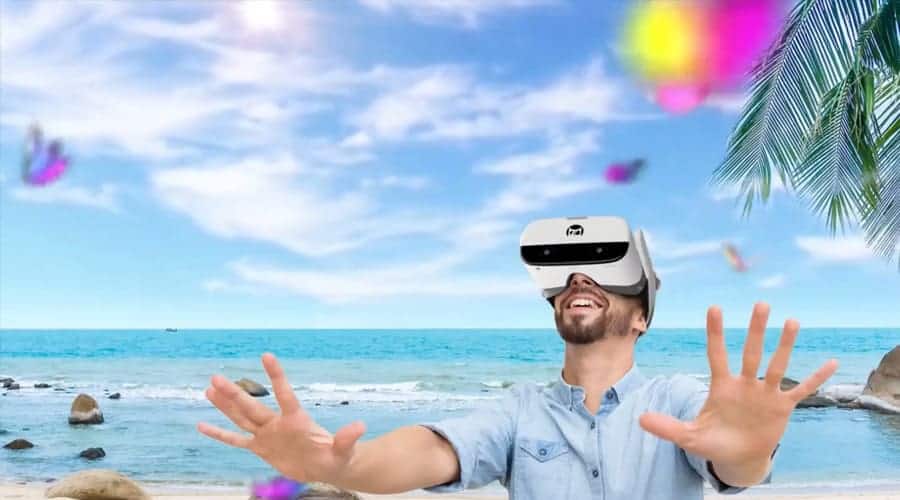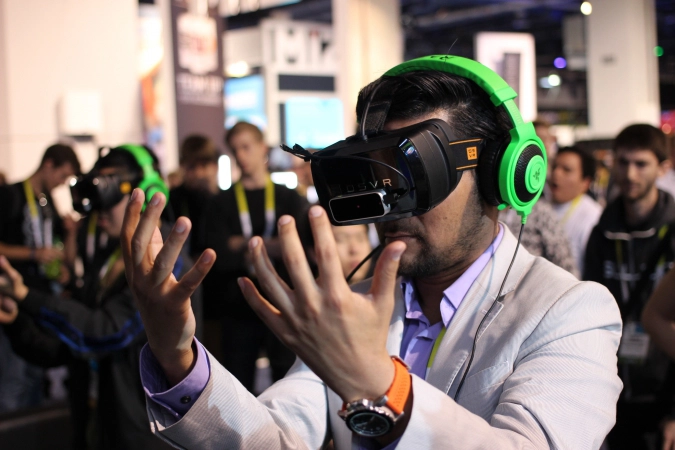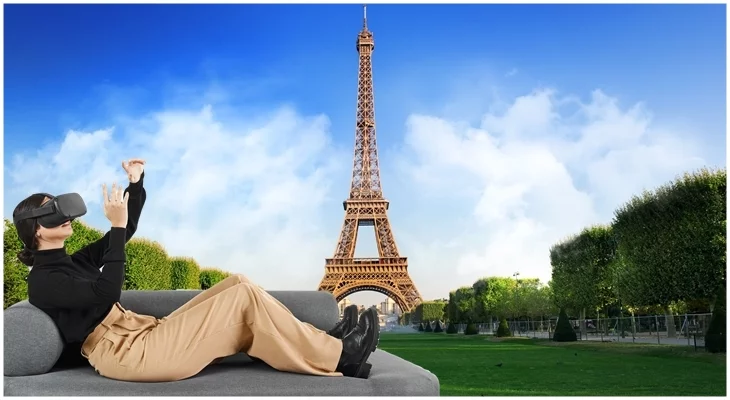Virtual Reality in Tourism has emerged as a transformative force, revolutionizing industries across the board. One such industry that has harnessed the power of VR to create immersive experiences is tourism. By allowing travelers to explore new destinations, historical sites, and even surreal realms from the comfort of their own homes, VR has opened up a world of possibilities. Learn more about the benefits, impacts, and challenges of Virtual Reality in the realm of tourism.

Benefits of Virtual Reality in Tourism
- Immersive Previews: One of the standout benefits of VR in tourism is the ability to offer potential travelers a sneak peek into their chosen destination. Before making any reservations, individuals can virtually “visit” the location, assess accommodations, and explore nearby attractions. This empowers travelers with accurate information and helps in making informed decisions.
- Access to Inaccessible Locations: VR enables people to visit locations that might be otherwise inaccessible due to physical limitations, cost constraints, or geopolitical issues. Whether it’s touring ancient ruins or diving into the depths of the ocean, VR offers an inclusive experience that transcends barriers.
- Cultural Preservation: Virtual Reality has the potential to aid in the preservation of cultural heritage sites. By creating detailed VR models of historical sites, monuments, and artifacts, VR can help protect these treasures from the ravages of time and human impact.
- Enhanced Learning: Education and exploration go hand in hand. VR can transform tourism into a learning experience by providing context-rich information about a location’s history, geography, and culture. This not only enhances the trip but also fosters a deeper understanding of the world.
Impacts of Virtual Reality in Tourism
- Personalized Travel Planning: With VR, travel agencies and websites can offer personalized travel itineraries. By analyzing a traveler’s interests, VR can recommend destinations, activities, and experiences tailored to individual preferences.
- Reduced Environmental Footprint: Virtual travel significantly reduces the need for physical travel. This has a positive impact on the environment by curbing carbon emissions associated with transportation.
- Economic Opportunities: The integration of VR in tourism creates new economic opportunities. VR content creators, developers, and technicians are all essential for building and maintaining virtual travel experiences.
- Destination Marketing: Destinations can showcase their unique features and attractions through VR, attracting a broader audience and potentially boosting tourism.

Challenges of Virtual Reality in Tourism
- Technology Accessibility: While VR is becoming more accessible, not everyone has the necessary equipment to experience it. High-quality VR requires powerful hardware and can be expensive, limiting its reach.
- Authenticity and Emotional Connection: Virtual experiences might lack the emotional connection that comes from physically visiting a place. The authenticity of local interactions, smells, and tastes may be difficult to replicate in a virtual setting.
- Digital Divide: The digital divide, characterized by uneven access to technology and the internet, can limit the potential benefits of VR in tourism, particularly in remote or underserved areas.
- Dependency and Isolation: Relying heavily on VR experiences could lead to a decline in physical travel. This might lead to a sense of isolation from the real world and hinder face-to-face interactions that are an integral part of travel.
In conclusion,
Virtual Reality has opened up a new dimension in the world of tourism. Its benefits span from immersive previews to cultural preservation, and its impacts include personalized planning and environmental benefits. However, challenges related to technology accessibility, authenticity, and the digital divide must be acknowledged and addressed. As technology continues to evolve, finding a balance between virtual exploration and physical travel will shape the future of tourism in a profound way.

FAQ “People also ask”
- How is virtual reality used in tourism?
- How does VR affect the tourism industry?
- What is the meaning of virtual reality tour?
- Why are virtual tours important in tourism?
- What are the advantages of virtual reality in travel?
- What are the advantages of virtual tours to a hotel?
- What are the objectives of virtual tour?
- What are the most important benefits of using virtual?
- What is the importance of virtual reality?
- What are the advantages and disadvantages of virtual reality?
- What are good examples of virtual reality?
- What are the 3 types of virtual reality?
- What are the 4 elements of virtual reality?
- What are the simple advantages of virtual reality?
- What are the advantages of virtual reality in the hospitality industry?
- What are the limitations of virtual reality?
- What are the disadvantages of virtual reality?
- What are the disadvantages of virtual reality in tourism and hospitality industry?
- What problems does virtual reality solve?
- How does virtual reality help to make experiences more inclusive?
- Why is virtual reality good for society?
- What are three advantages of virtual reality?
- How does virtual reality help the environment?







